With the efforts as well as comprehensive solutions from all levels, sectors and localities, the agricultural production chain in Hanoi plays an important role in restoring and promoting the growth of the city’s agricultural sector.
Although the COVID-19 epidemic has had a great impact on the production and consumption of agricultural products, the agricultural production chain has still been operating stably in Hanoi. Vu Van Ky, Director of Dong Cao Agricultural Service Cooperative, Trang Viet commune (Me Linh district, Hanoi) said that the cooperative has maintained stable production. The households now are promoting vegetable planting to ensure a sufficient supply to the market.
Nguyen Thi Lan, Director of Lan Vinh Trading Joint Stock Company (Gia Lam District, Hanoi) said that at present, when the Covid-19 epidemic is under control, Lan Vinh's food chain is promoting cooperation with livestock farms to supply 4,000 to 6,000 chickens per day to contracted clients. The production chain not only keeps control of the product origin but also helps businesses and farmers be assured of product output and pricing.
Suggesting that a production chain is the optimal solution in the current context, Deputy Director of the Hanoi Department of Agriculture and Rural Development Ta Van Tuong said, “In reality, when the situation of Covid-19 was complicated, the price of meat and vegetables sold at the local markets fluctuated. Some small businesses took advantage of the disease to raise prices, while the product costs remained the same as per the signed contract."
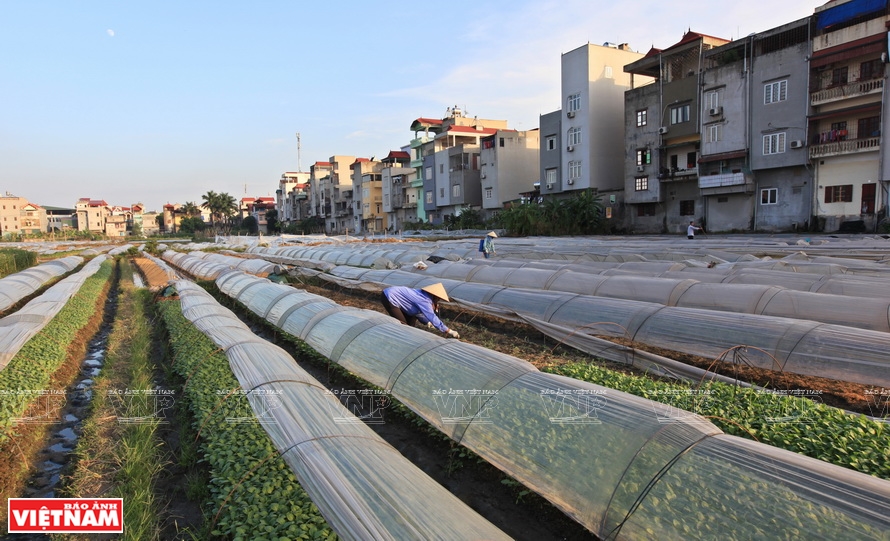
By May 2020, Hanoi has increased its safe vegetable area to more than 16,000ha,
forming 151 safe vegetable production areas in suburban districts. Photo: Tat Son
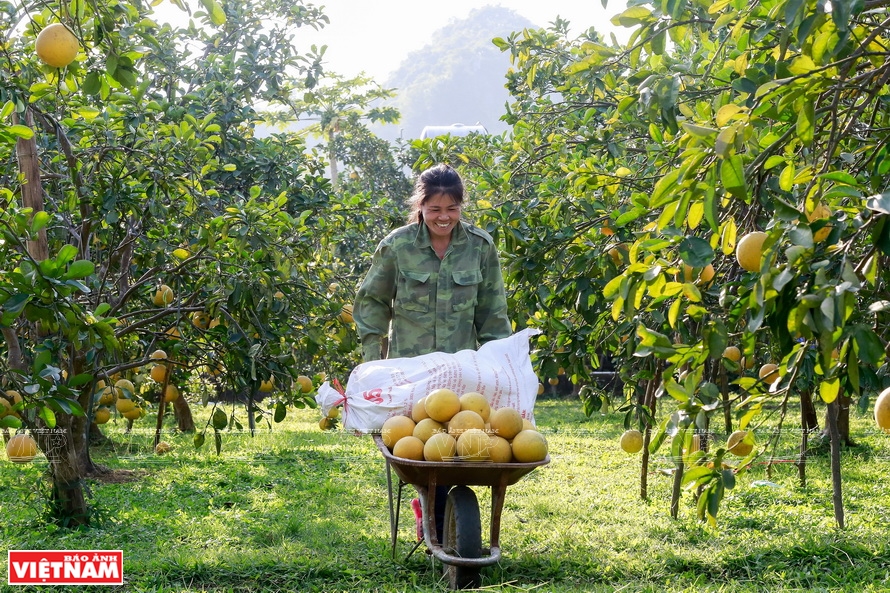
Growing pomelos using the method of VietGap in Nam Phuong Tien,
Chuong My - a typical OCOP product of Hanoi agriculture. Photo: Viet Cuong
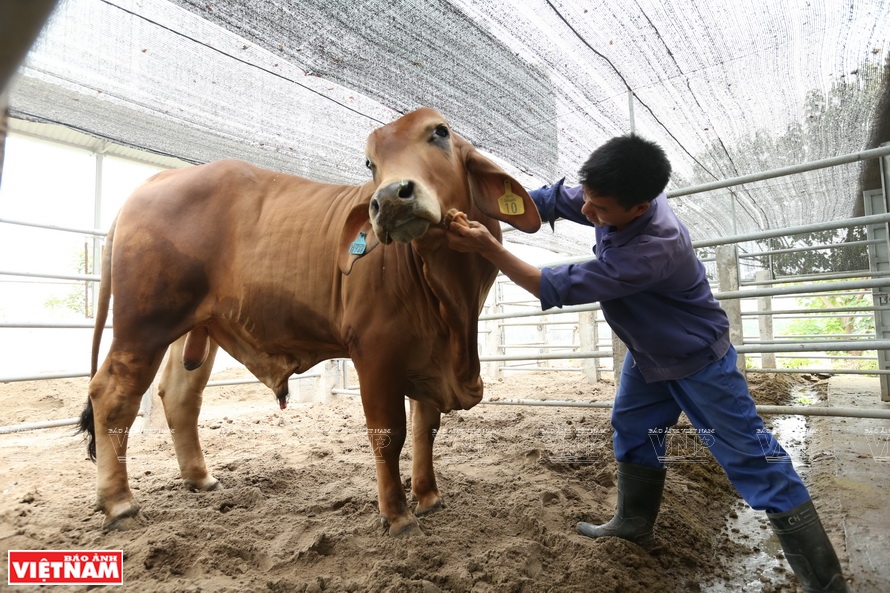
The cow farm follows the direction of "synthesizing dairy and meat productions"
in Duong Ha commune, Gia Lam district. Photo: Dong Bach
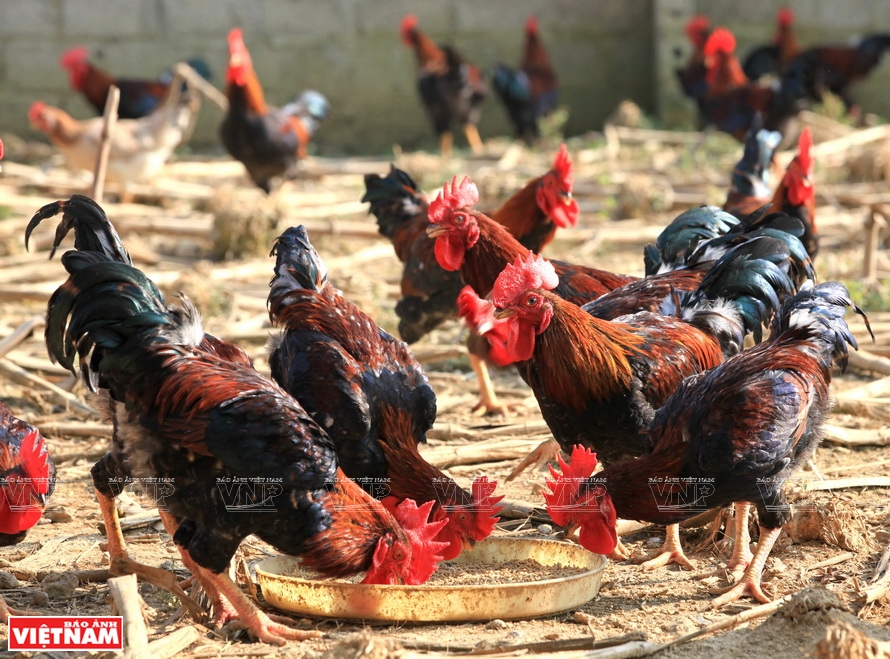
Hanoi has successfully built collective brands of "Son Tay Chicken", "Ba Vi Chicken" and "Soc Son Chicken".
The city has also built 21 chains of animal husbandry-products onsumptions. Photo: VNP
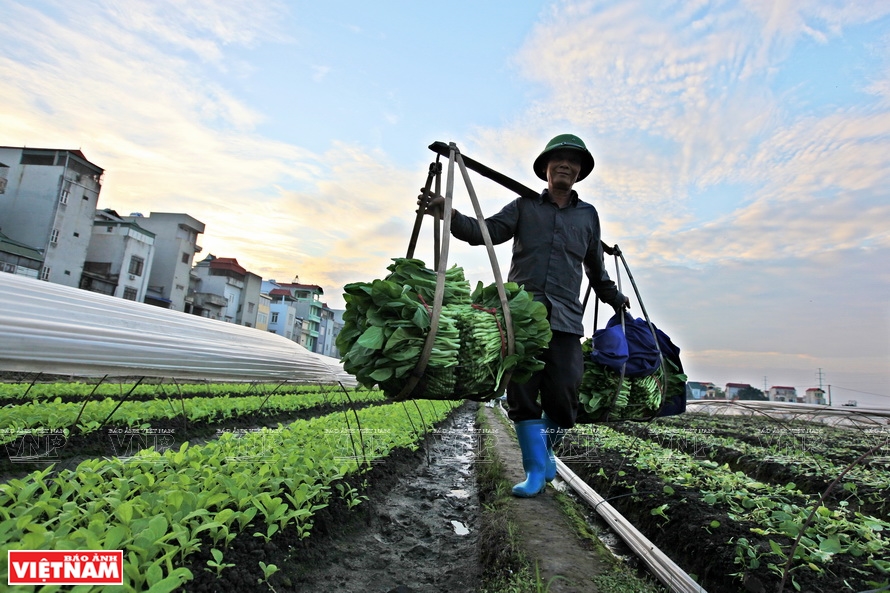
Model of growing safe vegetables in Thuong Tin district. Photo: VNP
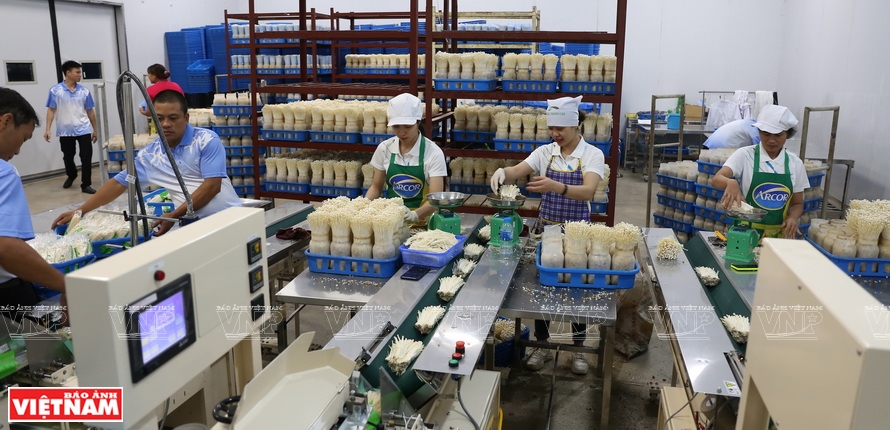
Process of preliminary processing at a mushroom farm of Kinoko Thanh Cao Import Export Co., Ltd
in Doc Tin commune, My Duc, Hanoi. Photo: VNP
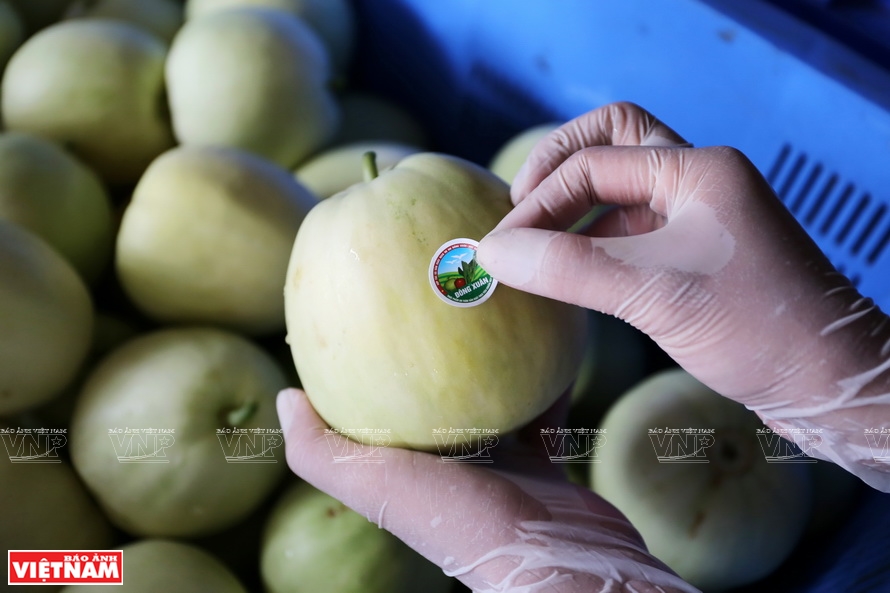
Melon products of the Dong Xuan Agricultural Production and Service Cooperative (Soc Son district)
have been certified by the Hanoi Department of Food Safety and Hygiene. Photo: VNP
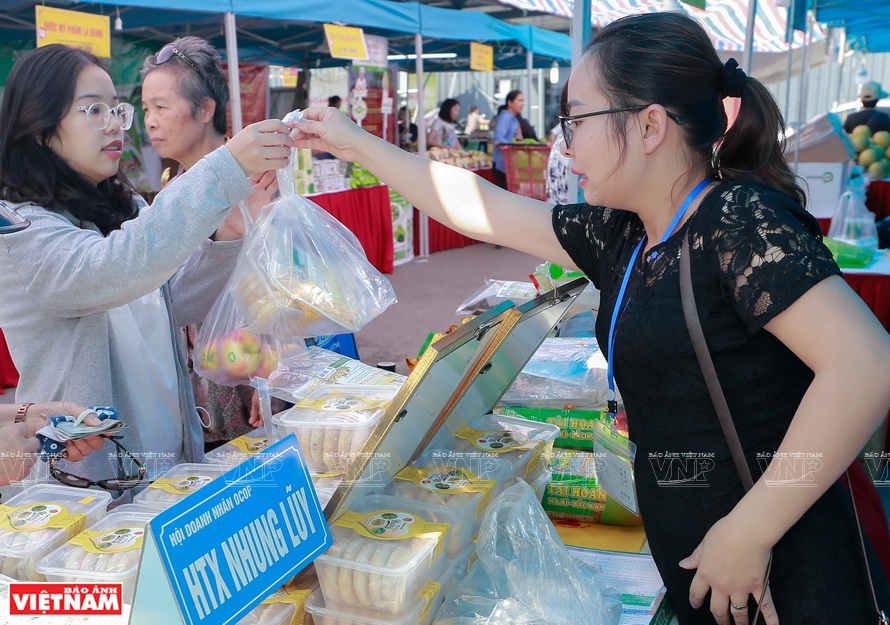 The Hanoi Department of Agriculture and Rural Development and Big C The Hanoi Department of Agriculture and Rural Development and Big C
supermarket organize the fair to introduce OCOP products of the North. Photo: VNP |
According to the Hanoi Department of Agriculture and Rural Development, the city currently has 138 agricultural production-consumption chains distributing to 110 supermarkets, more than 1,400 general stores and 300 stores specializing in agricultural and seafood products. On a daily basis, these chains supply more than 60 tons of pork, 2 tons of beef, 36 tons of poultry, 300,000 eggs, 40 tons of processed meat, 80 tons of fresh milk and nearly 100 tons of fresh vegetables to Hanoi’s markets. As the epidemic is under control in the city, restaurants and canteens have resumed operation. Therefore, it is important for these chains to increase their production to fulfill contracted orders.
Along with the city's supportive solutions, localities should proactively develop these chains for competitive products, especially products under the One Commune - One Product (OCOP) program. Regarding this, Dong Anh District Vice Chairman Nguyen Xuan Linh said that in 2020, Dong Anh will strive to make 40-45 products certified by the authority as high quality OCOP products. To build a chain for these competitive products, the district has built a website and affixed QR-code traceability stamps for nearly 600 products of all kinds at 70 manufacturing companies and processing facilities. Based on this, the district can classify as well as give support for product promotion, distribution channel formation, link diversification, and promote the application of 4.0 technology in the commodity chain.
Director of the Hanoi Department of Agriculture and Rural Development, Chu Phu My, also said: "A production chain is determined by the agricultural sector as a key to restore and promote growth of the sector. In the context that the agricultural sector needs to become a pillar of the capital's economy, chain development is a top priority. Therefore, in the immediate future, Hanoi’s government will grant 50% of the cost of seedling and essential supplies to develop agricultural production-consumption chains;100% of the cost of packaging and product labelling (for 3 seasons or 3 production cycles) for companies participating in production chains; and at the same time support 40% of the cost of transferring and applying essential science and technology.”
Story: Phong Thu - Photos: VNP